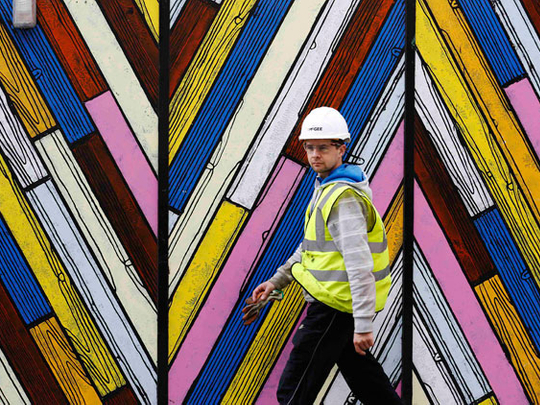
London: British businesses have reported their fastest upturn in five years and shoppers pushed their spending back to near pre-lockdown levels.
A flash reading of the IHS Markit/CIPS UK Composite Purchasing Managers' Index (PMI) shot up to 57.1 in July from 47.7 in June, above the 50 threshold for growth for the first time since lockdown began in March. The figure, its highest since June 2015 and above the eurozone's reading for this month, was better than all forecasts in a Reuters poll of economists.
The surge suggested Britain's economy would return to growth in the third quarter after shrinking by more than 25 per cent in March and April, Chris Williamson, chief business economist at PMI compiler IHS Markit, said. "Even with the July rebound, there's a long way to go before the output lost to the pandemic is regained and, while businesses grew more optimistic about the year ahead, a V-shaped recovery is by no means assured."
9 %
Like contraction of UK economy this year, and the worst since 1920sJune provided the foundation
Separate official data showed retail sales jumped back almost to pre-coronavirus lockdown levels in June, when non-essential stores in England reopened. Sales volumes in June leapt by 13.9 per cent from May, as spending on clothes and home improvements jumped.
But economists said the shopping bounce was probably at the expense of spending on other things, such as eating out or going to the cinema, which remain hit by worries about the virus. While the PMI indicated a quickening of growth, it did not signal a return to normal levels of output across businesses, which some economists think could take years.
A Reuters poll this week suggested the economy could contract by more than 9 per cent this year, its biggest downturn since the 1920s. Government budget forecasters have warned the jobless rate could rise to its highest since the mid-1980s this year.
On Thursday, Bank of England interest-rate setter Jonathan Haskel said Britain's economic recovery from the coronavirus crisis could be slow and it would depend on whether people felt confident that it was safe to go out.
Consumer sentiment is still below its level before the coronavirus struck, but employers have turned positive about hiring and investment for the first time since February, separate surveys showed earlier on Friday.
The PMI for services, representing most of Britain's economy, rose to 56.6 in July from 47.1. But IHS Markit said demand was weaker than expected for some businesses after the lockdown lifted for bars and restaurants on July 4.








